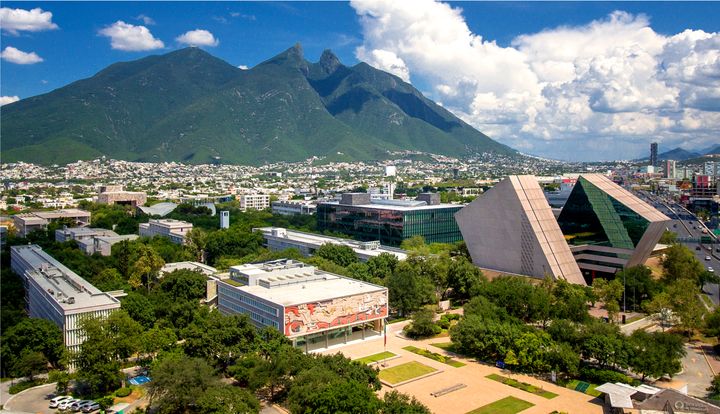The first time Patricia thought about the idea of creating a foundation was in 2010, when she heard about The Giving Pledge. This initiative invited philanthropists in the United States to allocate part of their fortune to address society's most pressing issues. This proposal really inspired her, and she began to ponder how she could contribute to Chile's social needs through her experience and estate.
Patricia Matte is a sociologist that has worked all her life involved in education and social policies. She began her career at the Economic Commission for Latin America and the Caribbean (ECLAC), and shortly thereafter was invited to work at the place that would mark her career: the National Planning Office of Chile (Odeplan)a government entity where she worked from 1975 to 1985. While there, she traveled across Chile to build the first Map of Extreme Poverty, which sought to identify and characterize the country's most vulnerable population. This document led to the design of the Social Characterization Card (CAS), which later became the foundation for the most relevant instrument used in Chile to this day to measure, among other things, poverty: the Economic and Social Characterization Survey (Casen).
After ten years working for the government on poverty and social development issues, Patricia focused her career on education, assuming the presidency of the Society of Primary Instruction (SIP), a non-profit corporation founded in 1856 that currently provides free education to more than 22,000 students in 17 schools. It was while leading this institution for twenty years where she deepened her work in education, continuing with the legacy that characterizes her family.
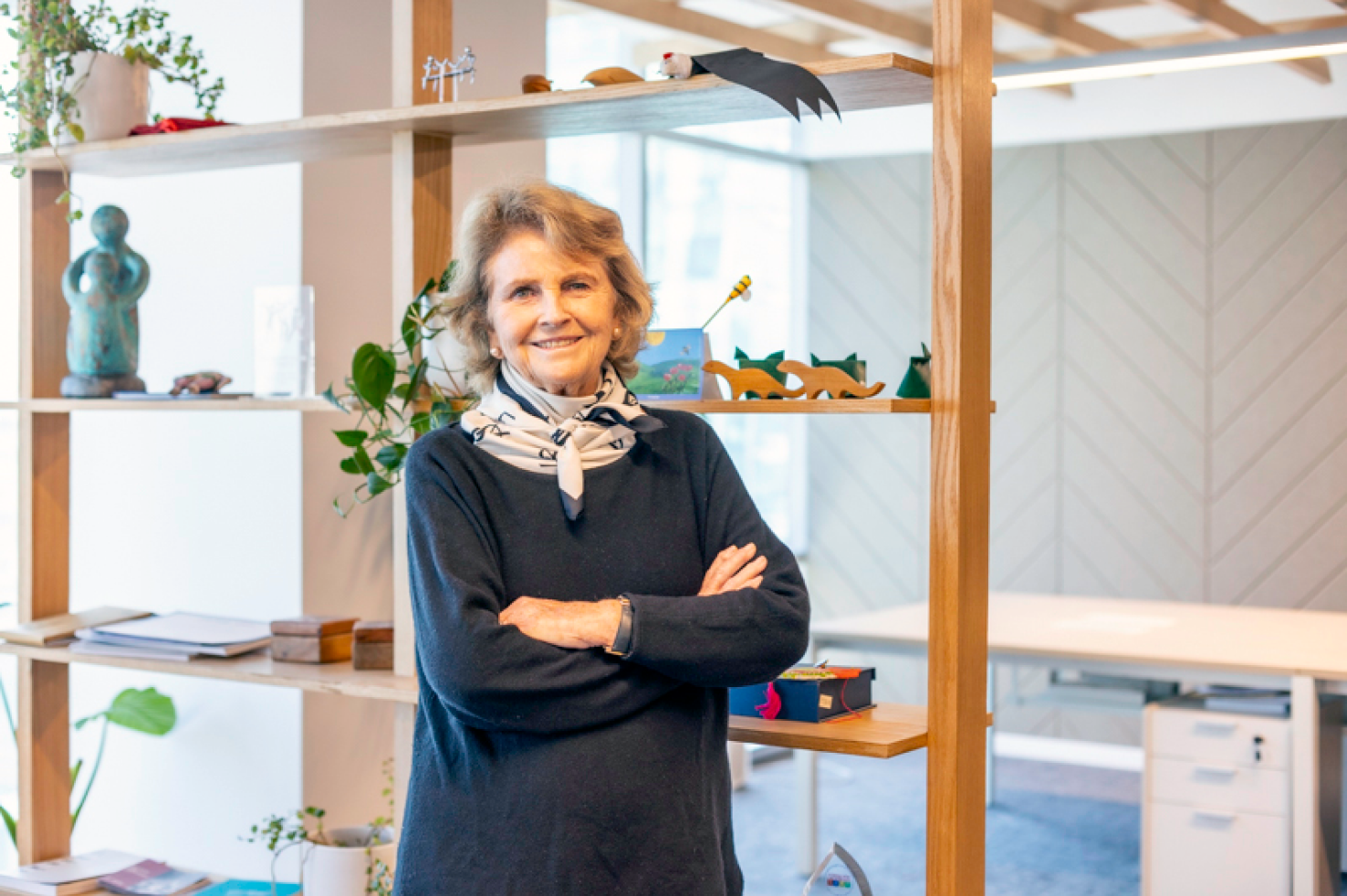
The philanthropic tradition of the Matte family dates to the mid-19th century, particularly to the figure of Claudio Matte, a prominent Chilean lawyer, educator and intellectual. Patricia's great-great uncle, he was rector of the University of Chile, presided over the Society of Primary Instruction for 60 years and developed, in 1884, a literacy method that has made a crucial contribution to the education of thousands of Chileans, known as the “Matte Method.”
Patricia is currently a member of the SIP board, advisor to the Freedom and Development Institute (Instituto Libertad y Desarrollo) and a full member of the Chilean Academy of Social, Political and Moral Sciences (Academia Chilena de Ciencias Sociales, Políticas y Morales) of the Chile Institute (Instituto de Chile). But most of her time is devoted to Olivo, the foundation she established in 2020 and where she has poured all her experience working for Chile's most underserved communities.
| THE BEGINNINGS OF OLIVO
A few years after hearing about The Giving Pledge, Patricia and her family began to consider the idea of creating a family office, which was always envisioned as having a philanthropic area led by Patricia. In 2014, the family office materialized as Olivo Capital and three years later, in 2017, the future foundation began taking shape. It was during this year when, invited by JP Morgan, Patricia travelled with her eldest grandson and Olivo Capital’s CEO to New York to learn about the work of philanthropists and foundations. They met, among several iconic ones, the Surdna, Ford and Simons foundations. This was a profoundly inspiring trip for what would become Olivo two years later.
Back in Chile, they started making the first decisions. For Patricia, one was fundamental: the foundation had to be funded through an endowment. “When you have an endowment, you secure a capital that allows you to plan for the long term, to think big and to support the projects in a more solid way,” Patricia explains.
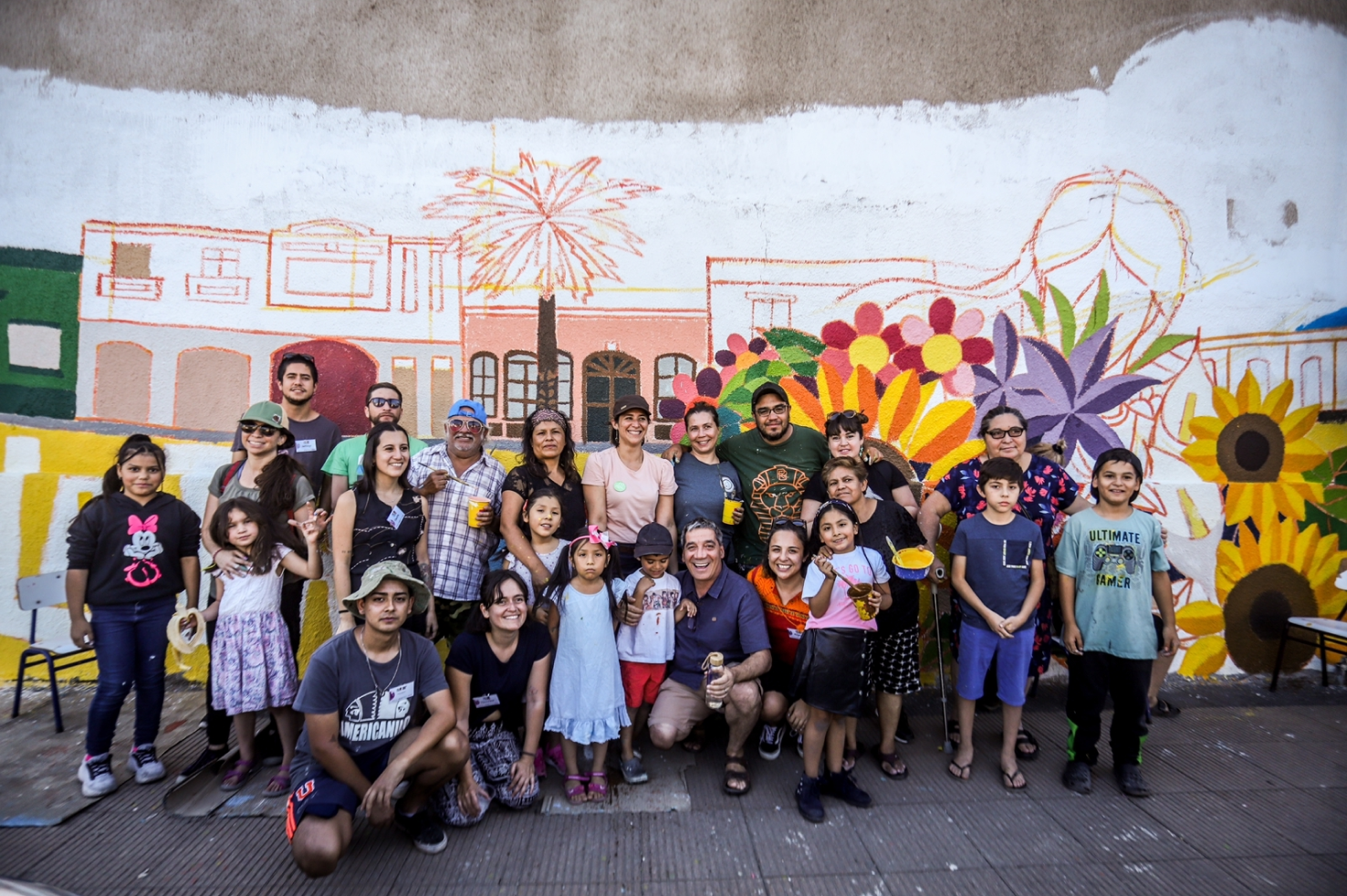
Then she determined that the mission of the future foundation would be working to improve the opportunities and quality of life of Chile’s most vulnerable communities. And the way to do this would not be developing and implementing projects directly, but supporting, connecting and funding those who already have the expertise and close contact with communities. The civil society organizations (CSOs).
| THREE DIMENSIONS TO ADDRESS A COMPLEX CHALLENGE
The decision to work with civil society organizations stems from Patricia's experience at Odeplan and SIP, where she learned about projects that had positive results and could contribute to the role of the State. “The problems of the poorest sectors are very complex and cannot be solved by the State alone. Finding solutions requires more focalized projects that respond with agility and relevance, and, in this, the work of civil society is key,” she states.
Understanding that social challenges are multifactorial and that there are different conditions that determine life opportunities, Patricia wanted to focus Olivo's work in three areas of action: Education, Culture and Public Spaces. The first, naturally associated with her background, and the other two as a result of what she had observed across the years working with low-income communities.
“At SIP I realized that outside of schools there was another reality – poor infrastructure, little security, abandoned spaces... the schools were an oasis, and this influenced the development and expectations of both students and their families,” she says. It was stemming from this reflection that Olivo's Public Spaces area was born, whose vision is not solely to revitalize or renovate public spaces, but also to support initiatives that contribute to the development of what is defined as “public life”, that which allows for interaction and encounter, and contributes to social cohesion.
"At SIP I realized that outside of schools there was another reality – poor infrastructure, little security, abandoned spaces... the schools were an oasis, and this influenced the development and expectations of both students and their families"
Patricia recalls a time when, together with SIP students, they attended a concert at the Municipal Theater of Santiago. “I thought they were going to behave terribly, but on the contrary, when the concert began a great silence befell and the children's faces lit up; they were fascinated. That's when I realized there could be a way to bridge gaps through culture and art, and that it had not been explored at all,” she states. Inspired by these sorts of experiences, she decided that Culture would be another line of action, focused on promoting access to cultural experiences, arts education and heritage.
Olivo's Education area is focused on fostering projects that address the most urgent needs of the education system, such as promoting of school attendance and reintegration, socio-emotional education and learning development. Currently, this area of Olivo supports the work of twenty expert organizations in these fields and work in different regions of the country. Although Olivo makes a clear distinction between its three areas of action, in several projects they intertwine, therefore holding projects that involve more than one area.
"I thought they were going to behave terribly, but on the contrary, when the concert began a great silence befell and the children's faces lit up; they were fascinated. That's when I realized there could be a way to bridge gaps through culture and art, and that it had not been explored at all"
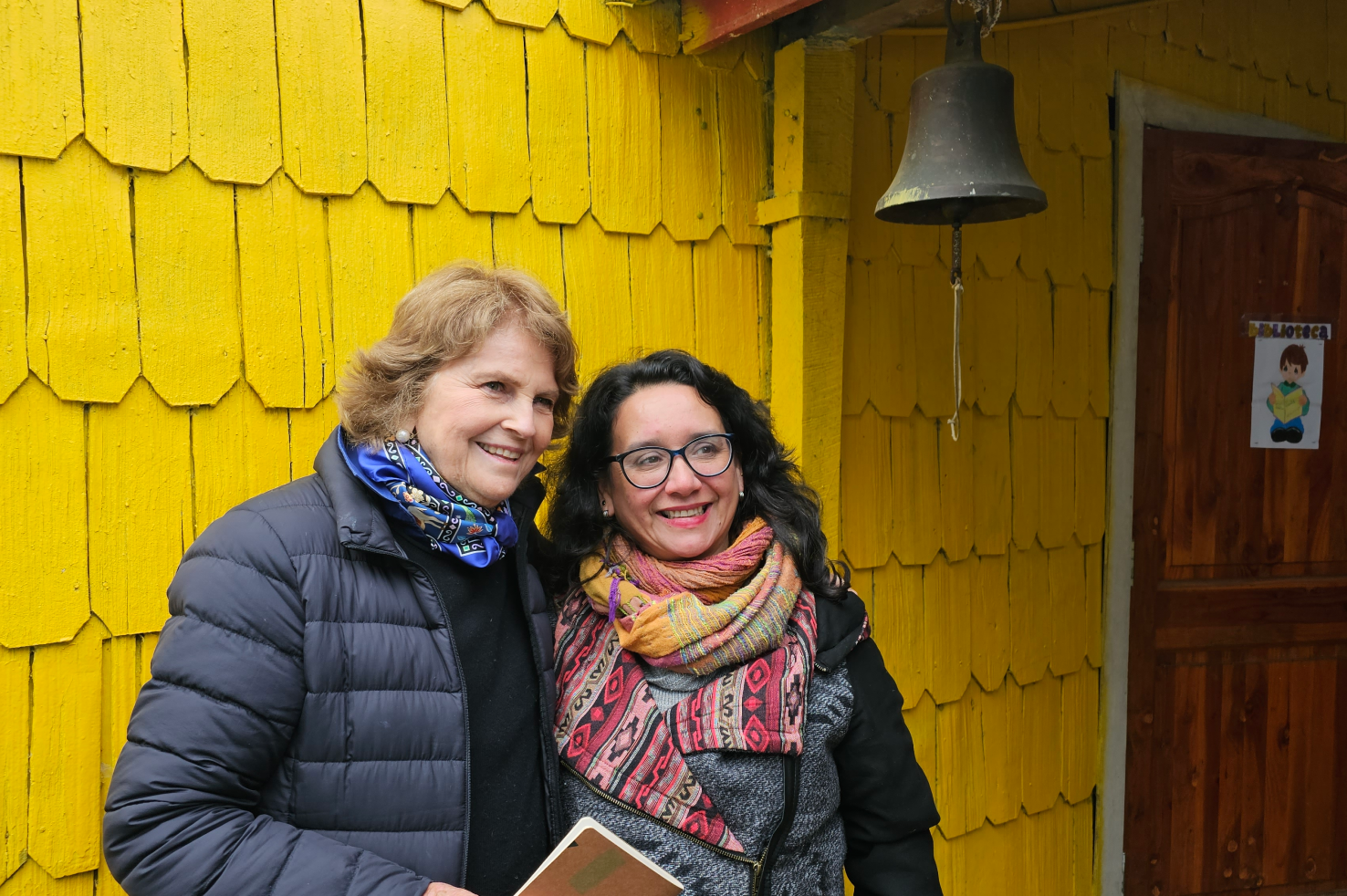
| STRENGTHENING CIVIL SOCIETY
Olivo began operating formally in 2020, which meant delving into the world of civil society in the midst of a pandemic. Observing the work with foundations and organizations during that year was crucial for defining more specifically what their working model would be. For Olivo's board, it was essential to have a system for allocating funds, monitoring projects and defining how to assess whether the supported projects were yielding results. Alongside this, they sought ways to collaborate and build networks to join efforts and generate impact.
In its early years, calls were made for projects in each area, which have currently been directed into two competitive funds. The first is Fondo Semillero (Seed Fund in English) aimed at small organizations and even individuals who implement innovative and small-scale projects. “We went out looking for new, lesser-known CSOs because we realized there was potential in them, and it allowed us to reach other parts of the country. These organizations also typically do not receive philanthropy’s support,” explains Yael Senerman, Olivo's executive director.
The second fund is Ciclo Olivo (Olivo Cycle in English), designed for more established organizations with a certain experience and results. This support can extend for up to five years, during which projects undergo a process of improvement and evaluation, and organizations a process of empowerment. This strengthening logic has become Olivo's main hallmark: empowering civil society. Both funds are designed as a continuum, with the objective of generating a path of learning and growth starting from the moment one enters Fondo Semillero until the end of Ciclo Olivo.
“We have realized that our most significant support, as a second-tier foundation, is offering organizations opportunities for becoming stronger, for them to learn, assemble and consolidate. We believe the impact of projects depends greatly on the organizations being solid and resilient,” says Yael.
Thus, Olivo seeks to contribute to the sustainability of organizations by closely supporting project implementation, funding strategic advice, project evaluations and training grants, among other tools. One of these is the advisory service for project scaling provided by Imago Global Grassroots to organizations supported by Olivo, or FondoAFondo, an unprecedented program in Chile that works towards the financial sustainability of CSOs and is promoted by Olivo in collaboration with other foundations and organizations.
| CONNECTING, COORDINATING, AND REPLICATING
The importance of making knowledge available to others, collaborating, and not reinventing the wheel every time are principles that Patricia also wanted to capture in Olivo. “When I worked at SIP, I found it terrible that great projects were encapsulated and not replicated, so I wanted to promote replication as a way of empowering civil society,” she explains.
Much of the foundation's work consists of connecting and creating networks among organizations to seek solutions together. Through work alliances, Olivo collaborates with others to support common and larger-scale causes. Additionally, the Education area promotes Telar, a community of practice of thirty organizations that come together to share best practices in the field of education, as well as generating knowledge and advocacy to contribute to public policy. Croma was born from the Culture area, a community that brings together twenty organizations that are working to find ways to highlight the impact of cultural experiences on people's lives.
| THE QUEST TO PROFESSIONALIZE PHILANTHROPY
Knowing whether the projects they support are generating impact on their beneficiaries is one of Olivo's main objectives, but it has also been one of its greatest challenges. “At first, we thought everything could be done scientifically, but soon enough this idea fell apart. We realized that assessing changes in people’s lives is much more complex,” asserts Juan Carlos Eyzaguirre, member of Olivo’s board and Patricia's eldest grandson.
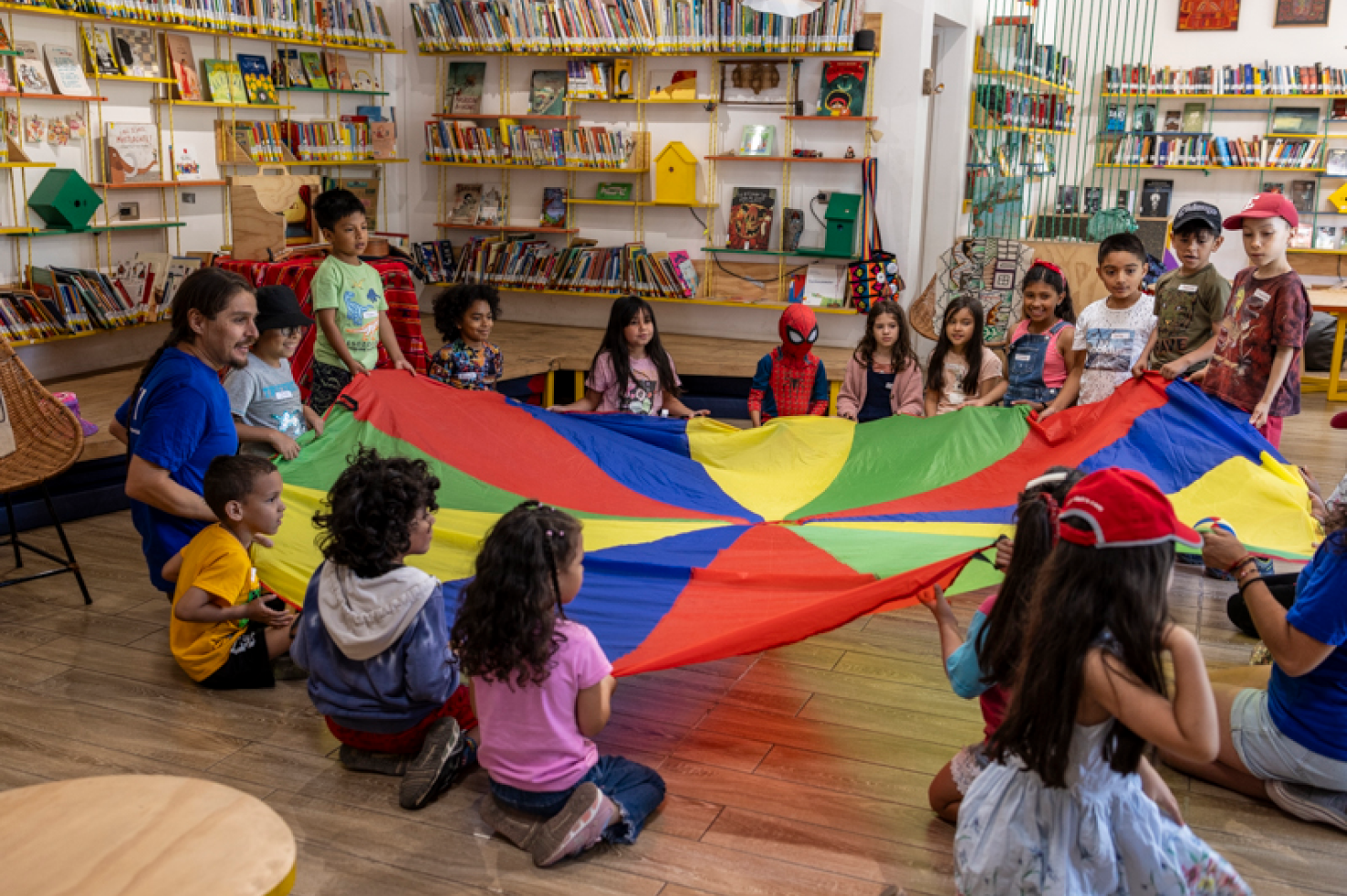
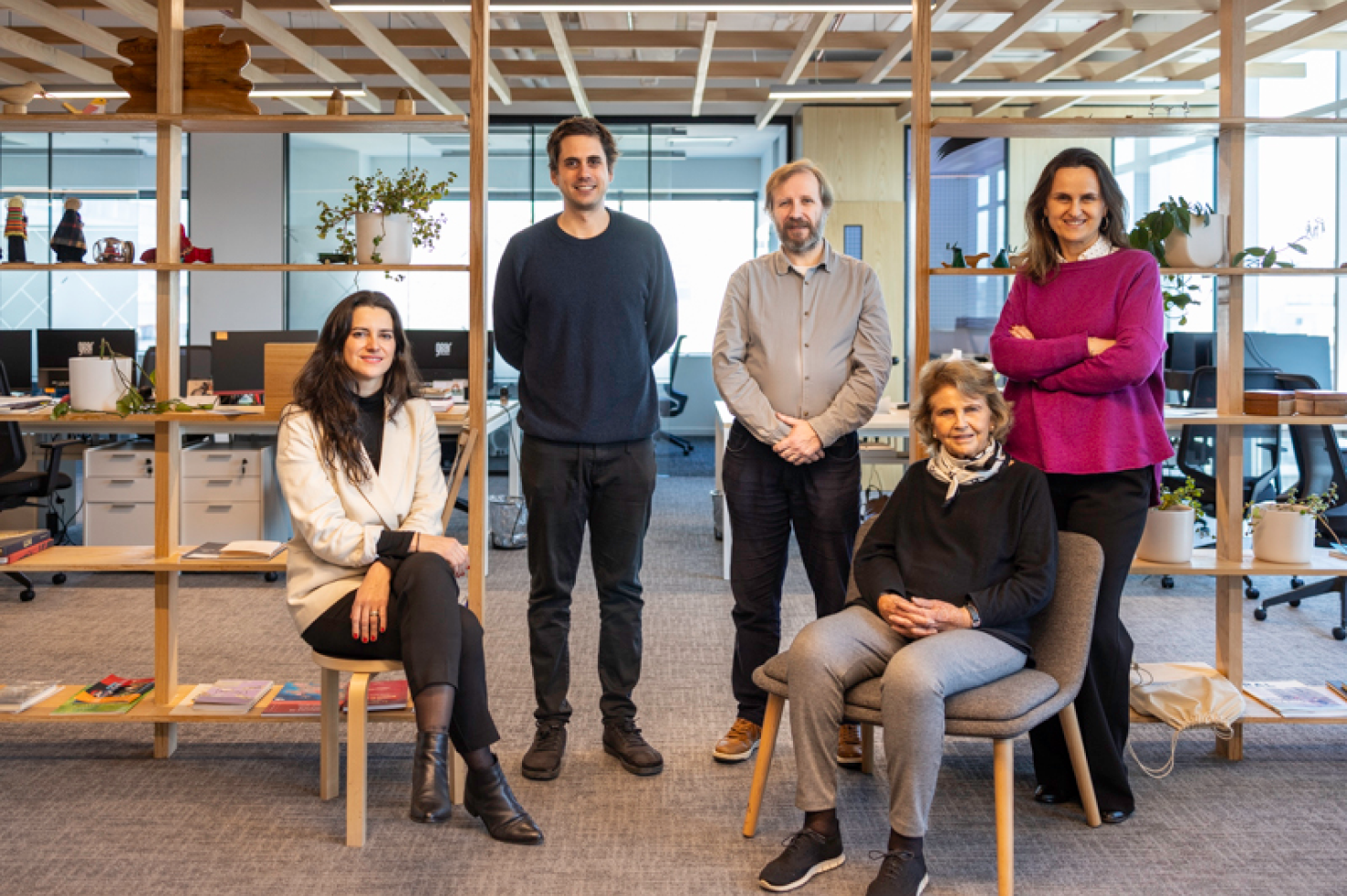
Olivo Foundation Directory, (from left to right) María José Montero, Juan Carlos Eyzaguirre, Francisco Gallego, Patricia Matte, Magdalena Larraín.
The goal of having rigorous and systematic processes is also a challenge for philanthropic institutions themselves, which, in Juan Carlos' opinion, should aspire to be efficient and effective. “We believe that philanthropy can be objective and professional. And this means evaluating, it means giving organizations the opportunity to improve their projects, but also making realistic decisions when things are not working. And it means, above all, not imposing the interests or worldview of the funders. Olivo's objective has never been to influence, but to empower civil society.”
In its five years of work, Olivo has constantly asked itself the question: How can we meaningfully contribute civil society’s work? What role can philanthropy play in this? “There is a challenge of finding the appropriate place for foundations like Olivo within the social fabric. How can we build a harmonious and efficient ecosystem between the state, private sector, civil society, and philanthropic organizations?” poses Yael. “And for that, we are learning, testing, and exploring,” she adds.
Olivo is looking for new ways in which philanthropy can make a significant contribution. In this line, it allocates 5% of its endowment to impact investment and is starting a first venture philanthropy project, consisting of making loans instead of donations, to civil society organizations.
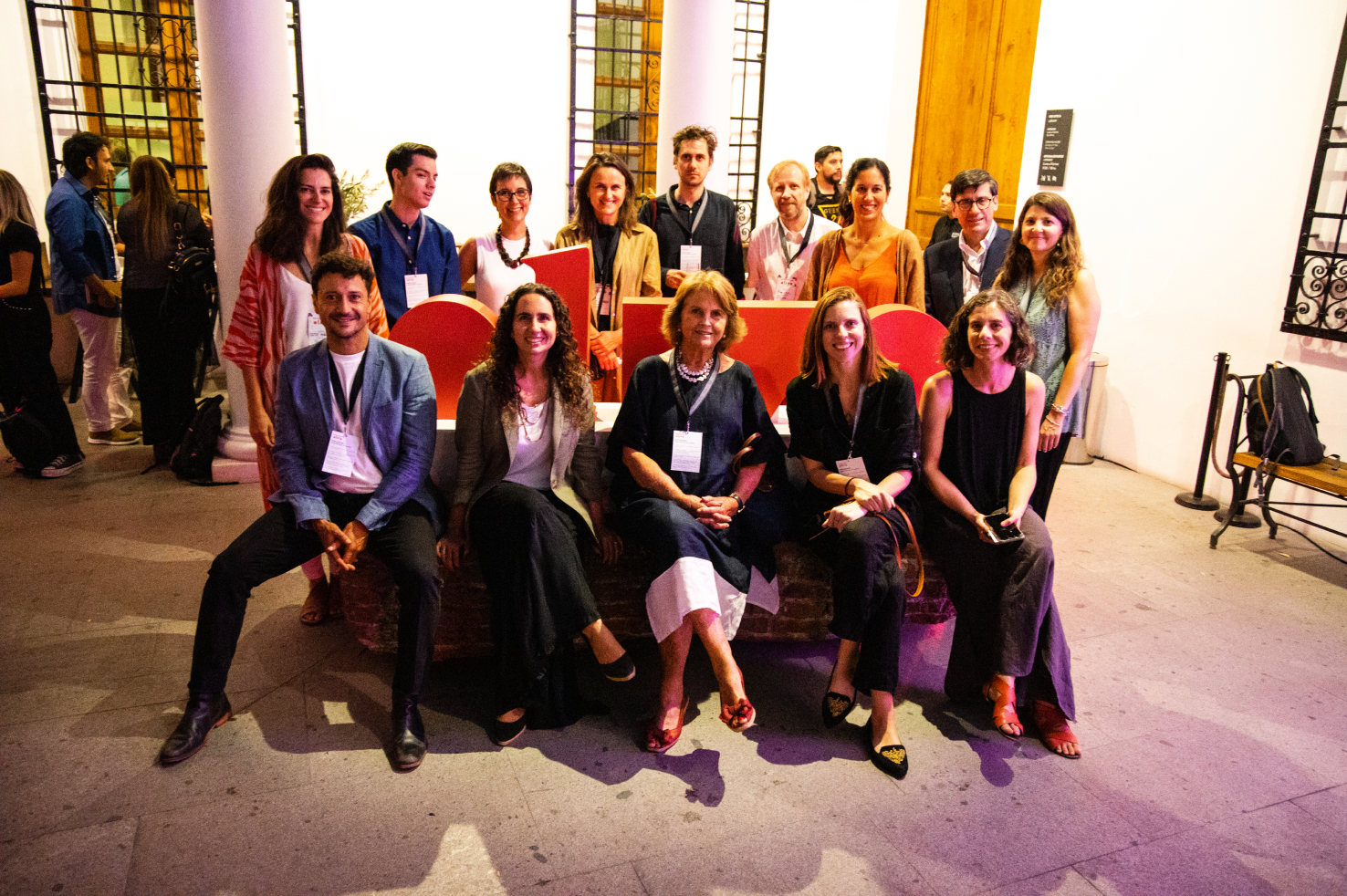
"We believe that philanthropy can be objective and professional. And this means evaluating, it means giving organizations the opportunity to improve their projects, but also making realistic decisions when things are not working. And it means, above all, not imposing the interests or worldview of the funders"
The foundation currently supports projects in all regions of Chile and works with 60 civil society organizations. Since 2020, it has worked with over 100 organizations and following the latest version of Fondo Semillero and Ciclo Olivo, it is expected that at least 20 new organizations will join. In addition to this, it has alliances with other donor foundations and networks that make up Chile's philanthropic ecosystem.
When asked about Olivo's future, Patricia states that the areas of action could change depending on the country's needs. However, she recognizes two permanent components, supporting civil society and their working model: testing, evaluating, learning and sharing. Which are based, to a large extent, on her vast experience and learnings from almost a lifetime working in social policies and education.

Pedro David Martínez
CEO, Regius Magazine.
regiusmagazine.com
